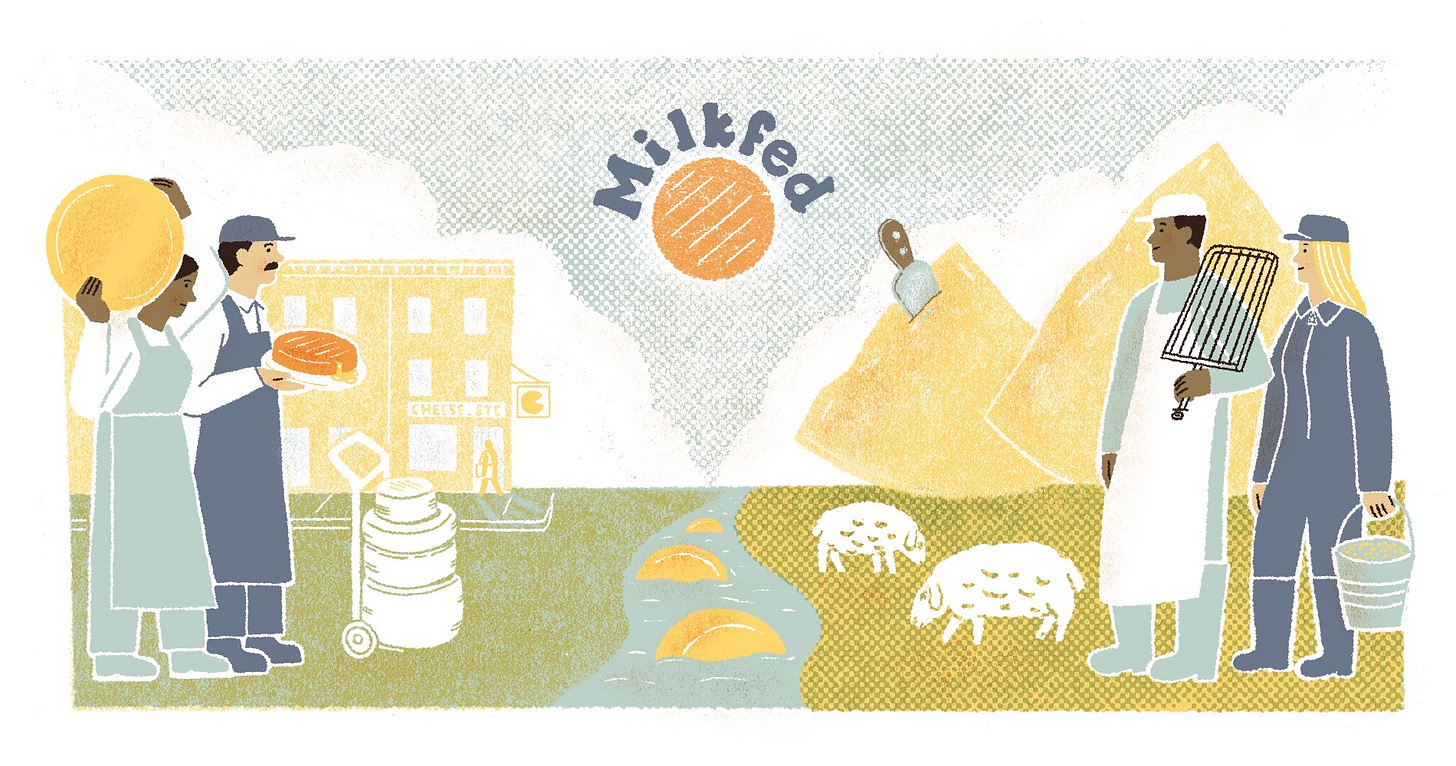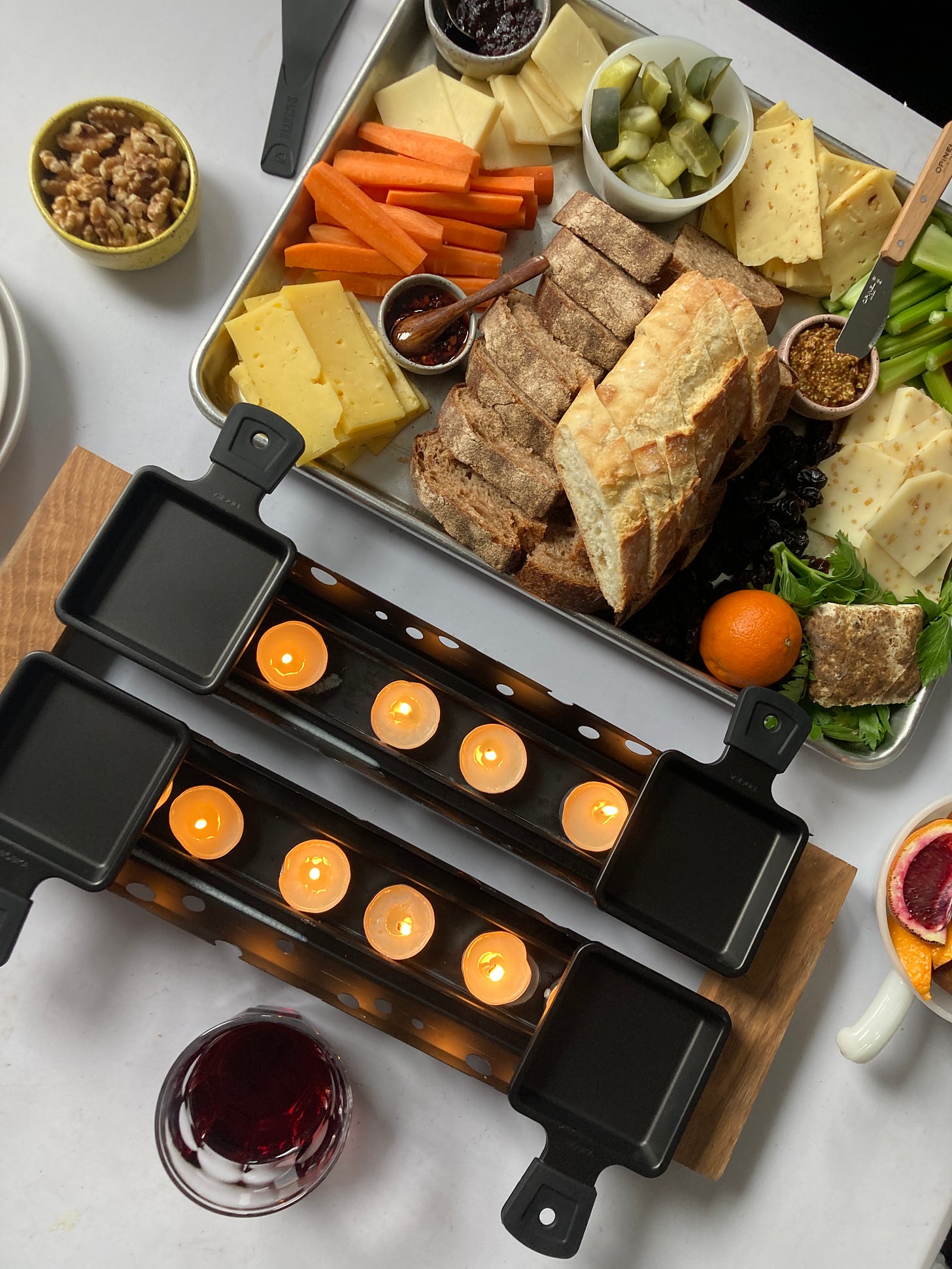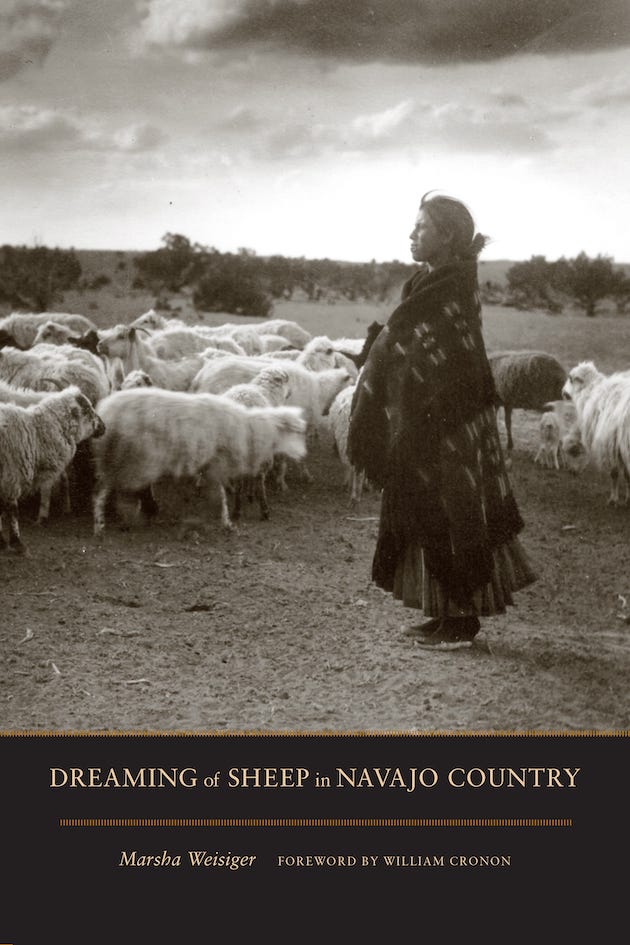Cheese is "healthier" than you thought. So what?
Rejecting the healthy/unhealthy binary around food

A note from Milkfed HQ: This newsletter touches on diet culture, anti-fat bias, and related topics. If that’s not something you’re up for reading about today, please feel free to skip this one.
The same tile graphic kept popping up all over my Instagram feed. The text, over an image of a starkly lit cheese board on a black background: “Good news about cheese: It’s much healthier than you thought.”
It was January, when diets, “lifestyle changes,” wellness fads, and ads for scammy weight-loss products flood social feeds even more than usual—a toxic annual tradition that sneaks up on you like CVS busting out Christmas decorations in August.
As news articles written about how study X found that food Y is actually healthier/deadlier than previously thought go, this one was relatively even-handed. The piece, originally published in Consumer Reports and picked up by the Washington Post to kick off the new year, emphasizes the many nutritional benefits of cheese and dispels misconceptions about saturated fat long promoted by U.S. nutrition guidelines. The author even notes that fermenting milk into cheese can add vitamins and beneficial gut bacteria. Good news indeed.
Those of us who sell cheese for a living are used to hearing shoppers say cheese is “bad” for you, that it’s too high in fat, that they’re watching their weight—sometimes even as they’re picking out a few wedges for the weekend. It’s only natural to want to promote a bit of science-backed validation. Not only in the hopes of boosting sales, but to make those inevitable conversations a little easier.
I can’t blame cheese-loving folks for making the story go viral. But for me, it didn’t feel validating. It felt defeating.
Despite gently pushing back against misconceptions about dietary fat and health, the piece assumes that weight gain is categorically bad and being fat is inevitably unhealthy. The main takeaway is: We thought cheese was bad because it makes you gain weight, but it turns out cheese is actually good because it might keep you from gaining weight.
As a fat person who’s done a lot of work to repair my own relationship with food and feel ok in my body, it’s frustrating to see this framing proliferate, both in mainstream media and on social media. And it’s a bummer to see cheese folk, pros and amateurs alike, promote this messaging uncritically. (I realize people are just trying to post some content and maybe sell a little more cheese—trust me, I get it! I also know there’s a good chance that many who shared the post didn’t read the article. )
Because I’ve been on the other side of that cheese transaction. Standing behind the farmers’ market table, freezing or sweating on a Saturday morning, forced to listen to customers justify—or talk themselves out of—their guilty pleasure in the kind of language I’ve struggled hard to leave behind.
Being fat and working in specialty food can be a bit of a mindfuck, especially if you present as a woman. I often wondered whether my body influenced how customers felt about the cheese I was selling. Did I look like someone who “likes to eat”—LOL at the idea of enjoying sustenance as a character trait—and therefore a gourmand, an authority to be trusted on culinary matters? Or did my appearance counter what shoppers believed about the awesome power of fresh food access to make the world healthy, and therefore thin? Did they pass by my table because they feared that enjoying a dollop of fromage blanc or a hunk of blue would make them fat like me?
Never mind that fat people can be healthy, and that yo-yo dieting and medical anti-fatness are likely responsible for many of the negative health outcomes correlated with higher weights. Or that regardless of what the research says, fat people deserve to be seen as actual human beings who deserve the same rights, access to medical care, and freedom from discrimination as everyone else. (Scroll down to the bottom of this post for some excellent resources if you’d like to learn more.)
In the West, mainstream views on food, health, and weight are shaped by pervasive anti-fat bias in European culture that dates back to the transatlantic slave trade. To differentiate from and mark themselves as superior to the Africans and African Americans they enslaved, white Europeans associated fatness with Blackness and thinness with whiteness and higher socioeconomic class. This bias persists today and is responsible for everything from the Kardashians hawking flat tummy tea on Instagram to disparate health outcomes for fat people, particularly fat Black women.
Classifying foods as good or bad based on whether they’re associated with weight gain is surface-level diet culture. But what’s beneath is much more sinister. If we accept that foods are inherently “healthy” or “unhealthy,” that fat people are unhealthy, and that body size and health status is a matter of personal responsibility, we’re perpetuating the racist, classist, ableist foundations of anti-fatness, whether we mean to or not. It’s time to leave this framing behind, critique it when we see it, and embrace new ways to talk about and experience the foods we love.
For me, that means never using diet talk like “sinful” or “guilty pleasure” in cheese marketing and editorial writing about food. In fact, I avoid discussing any health claims in the work I do—good or bad—unless the topic is food safety.
It also means eating what I want to eat without self-judgment, whether it’s the comforting bowl of brown rice, roasted veggies, and marinated tempeh I had for dinner last week or the luscious, melty raclette feast I shared with friends. My life has vastly improved since I stopped thinking about food—and my body—as “healthy” or “unhealthy,” good or bad, something to feel ashamed of or be controlled.
Plus, there’s plenty to shout out about cheese without resorting to diet talk or latest health claims. Its incredible diversity of flavor, texture, and aroma; its ability to stretch and melt and ooze and do magical things when we cook with it. Its uniqueness and provenance and changeability. Its 9,000 years of keeping humans alive and well-fed and delighted on this planet.
After all, cheesemongers tell stories. Let’s tell the world—and ourselves—a better story about cheese.
Recent Cheese
Some excellent wedges ended up on that raclette spread. We melted two cheeses from Valley Milkhouse here in PA—Lady’s Slipper, a supple cider-washed tomme, and a batch of Chickweed, her dry Jack, shot through with smoked jalapeños—along with Marieke’s Foenegreek Gouda from Wisconsin. Accompaniments included V Smiley Preserves’ cherry hibiscus rose hip jam, whole-grain mustard, and spicy chili crisp.
Recent Reads
I’m working my way through Dreaming of Sheep in Navajo Country, an environmental history of Navajo pastoral traditions and the disastrous effects of the Livestock Reduction Act of the 1930s, when government agents slaughtered hundreds of thousands of sheep and other livestock in Navajo communities. It’s an academic book, so it’s a little dense, but I can’t recommend it enough—especially if you fancy yourself an environmentalist or work in animal agriculture or a related field (including cheese).
Resources
Want to know where I got all these wild ideas about fat and health? Here are some resources to explore.
Podcasts
Maintenance Phase, especially the episodes Is Being Fat Bad For You?, The Body Mass Index, The Obesity Epidemic, and Anti-Fat Bias
Newsletters
Burnt Toast by Virginia Sole-Smith
Weight and Healthcare by Regan Chastain
Books
Fearing the Black Body: The Racial Origins of Fat Phobia by Sabrina Strings
What We Talk About When We Talk About Fat and “You Just Need to Lose Weight” and 19 Other Myths About Fat People by Aubrey Gordon
The Body Is Not an Apology: The Power of Radical Self-Love by Sonya Renee Taylor







Thank you for eloquently putting into words what I have been feeling in my feels. I'm still working on my shut-it-down-one-liners to use at my cheese counter if/when a customer makes some sort of "guilty pleasure" statement. Striking the balance between educating/informing but also encouraging people to still "buy cheese from me pleaseeeeee". It's a tightrope walk for sure.